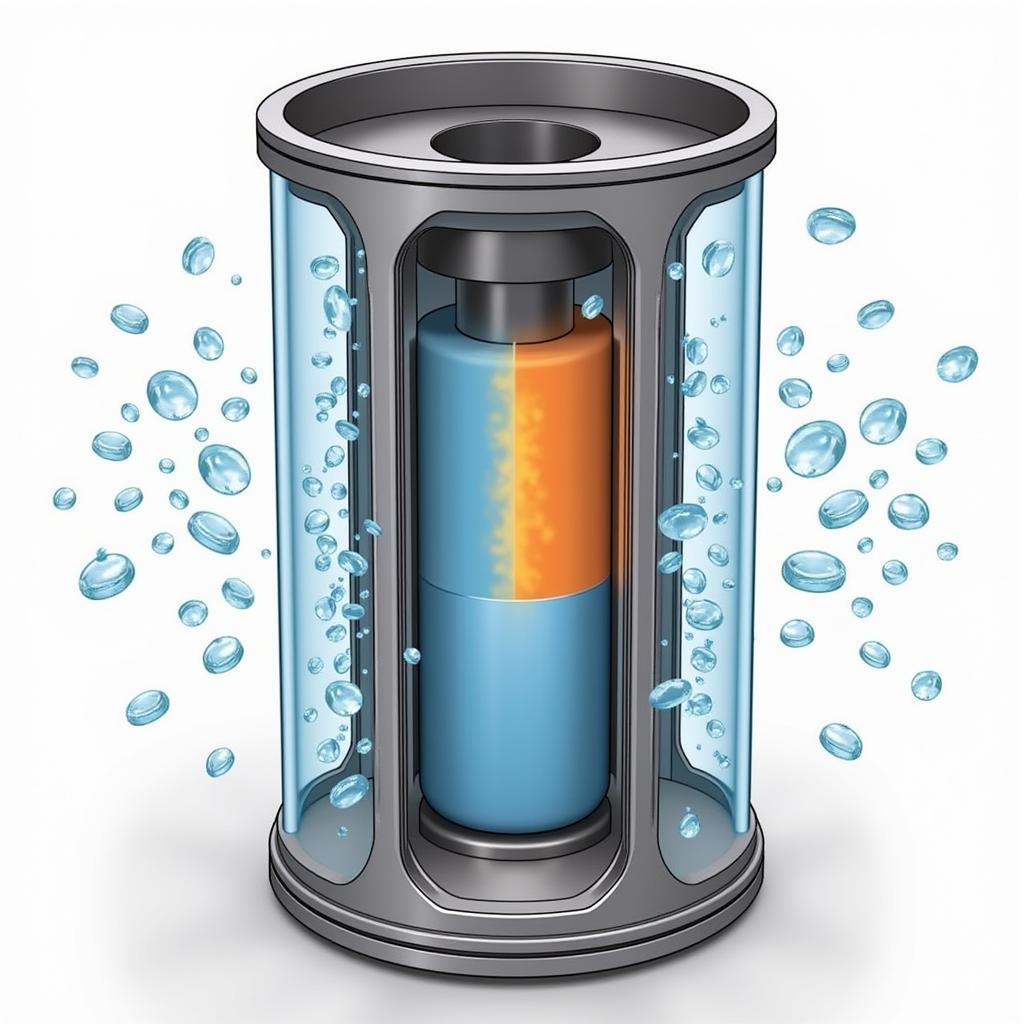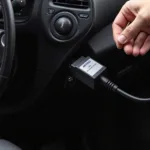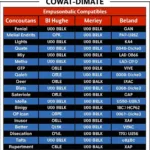The OBD2 code P0174 indicates a problem with your car’s engine air-fuel mixture. Specifically, it means that the air-fuel mixture in bank 2 of your engine is running too lean. This means there is too much air or not enough fuel in the mixture.
 Lean Air-Fuel Mixture in Car Engine
Lean Air-Fuel Mixture in Car Engine
Ignoring this code can lead to reduced engine performance, decreased fuel efficiency, and potential damage to your catalytic converter. This guide will explain what causes the P0174 code, common symptoms, how to diagnose it, and the most effective solutions.
What Does OBD2 Code P0174 Mean?
The P0174 code specifically refers to “System Too Lean (Bank 2).” Let’s break it down:
- System Too Lean: This indicates that the engine’s computer (ECU) has detected a lean air-fuel mixture, meaning there’s too much air compared to fuel.
- Bank 2: This refers to the side of the engine that does not contain cylinder #1. If your engine has a V6 or V8 configuration, it has two cylinder banks.
Common Symptoms of a P0174 Code
A P0174 code can manifest through several symptoms, including:
- Check Engine Light: The most obvious sign, illuminated on your dashboard.
- Rough Idle: The engine might vibrate noticeably when the car is stopped.
- Misfires: The engine stumbles or hesitates, especially during acceleration.
- Reduced Engine Performance: You might notice a lack of power and sluggish acceleration.
- Poor Fuel Economy: A lean mixture can lead to a decrease in miles per gallon.
Common Causes of OBD2 Code P0174
Several culprits can trigger a P0174 code. Here are some of the most common:
- Vacuum Leaks: Leaks in the intake manifold, vacuum hoses, or PCV valve can disrupt the air-fuel mixture.
- Faulty Oxygen Sensor (O2 Sensor): The oxygen sensor in bank 2 might be providing inaccurate readings to the ECU.
- Dirty or Defective Mass Air Flow (MAF) Sensor: The MAF sensor measures the amount of air entering the engine. A faulty sensor can lead to incorrect air-fuel mixture calculations.
- Fuel Injector Problems: A clogged or malfunctioning fuel injector on bank 2 can restrict fuel flow.
- Fuel Pressure Issues: Low fuel pressure, potentially due to a failing fuel pump, can cause a lean mixture.
- Exhaust Leaks: Leaks before the oxygen sensor can introduce outside air and skew readings.
How to Diagnose OBD2 Code P0174
Diagnosing the root cause of the P0174 code requires a systematic approach:
- Read the Code: Use an OBD2 scanner to confirm the P0174 code and check for any other codes stored in the ECU.
- Inspect for Vacuum Leaks: Visually inspect all vacuum hoses connected to the intake manifold and related components for cracks, loose connections, or damage. You can also use a carburetor cleaner spray around these areas while the engine is idling – any changes in engine speed indicate a leak.
- Check the Oxygen Sensor: Inspect the oxygen sensor in bank 2 for damage or fouling. You can use a multimeter to test its voltage output.
- Inspect the MAF Sensor: Locate the MAF sensor in the air intake duct and inspect it for dirt or debris. Clean it with a MAF sensor cleaner if necessary.
- Test Fuel Pressure: Use a fuel pressure gauge to ensure the fuel pump is delivering adequate pressure.
- Check for Exhaust Leaks: Carefully examine the exhaust manifold and pipes leading to the oxygen sensor for any leaks.
How to Fix OBD2 Code P0174
Once you’ve diagnosed the problem, you can proceed with the appropriate repair. This might involve:
- Repairing Vacuum Leaks: Replace any cracked, loose, or damaged vacuum hoses. Seal any leaks in the intake manifold.
- Replacing the Oxygen Sensor: If the oxygen sensor is faulty, replace it with a new one.
- Cleaning or Replacing the MAF Sensor: Clean the MAF sensor with a MAF sensor cleaner. If cleaning doesn’t resolve the issue, replace the sensor.
- Cleaning or Replacing Fuel Injectors: If a fuel injector is clogged, you can try cleaning it using a fuel injector cleaning kit. If cleaning doesn’t work, the injector might need replacement.
- Addressing Fuel Pressure Problems: If low fuel pressure is detected, diagnose and repair the issue, which might involve replacing the fuel pump or fuel filter.
- Repairing Exhaust Leaks: Seal any leaks found in the exhaust manifold or pipes leading to the oxygen sensor.
When to Seek Professional Help
While some P0174 fixes are DIY-friendly, others require specialized knowledge and tools. Consider seeking professional help if:
- You are not comfortable working on your car’s engine.
- The diagnostic process doesn’t pinpoint the cause.
- The repairs involve complex procedures or require specialized tools.
“Addressing engine codes quickly is crucial. Ignoring them can turn a minor issue into a major engine problem,” says Ethan Miller, Senior Automotive Technician at CarDoc Solutions.
OBD2 Code P0174: FAQs
Q: Can I still drive my car with a P0174 code?
A: It’s not recommended to drive for extended periods with this code. While short trips might be possible, prolonged driving with a lean air-fuel mixture can damage your catalytic converter and lead to further engine problems.
Q: How much does it cost to fix code P0174?
A: The cost can range from as low as $20 for a simple vacuum hose replacement to over $500 for a new fuel pump.
Q: Can a loose gas cap cause a P0174 code?
A: While a loose gas cap usually triggers an evaporative emissions code, a very loose cap could potentially contribute to a lean mixture in some cases.
Need More Help with Your OBD2 Codes?
If you are experiencing issues related to the OBD2 code P0174 or any other car trouble codes, our team at OBDFree is here to assist you. Contact us via WhatsApp at +1(641)206-8880 or email us at [email protected]. We offer 24/7 customer support to help you get back on the road safely and efficiently.
For more information on OBD2 codes, car maintenance, and in-depth troubleshooting guides, explore our comprehensive resources available on the OBDFree website. We offer a wealth of knowledge to empower car owners and enthusiasts alike.

